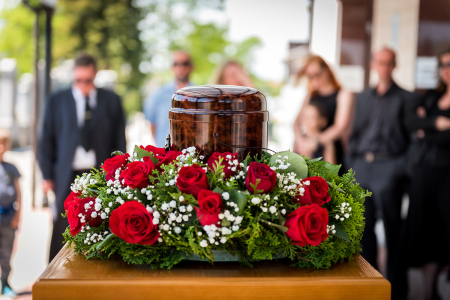28-year-old woman opts for assisted suicide amid incurable depression: My urn 'will be my new house!'

A 28-year-old Dutch woman suffering from depression, autism and borderline personality disorder is scheduled to die by assisted suicide with the help of her doctor next month.
Zoraya ter Beek, who lives in a small Dutch village near the German border, noted that she decided to schedule her suicide after a psychiatrist informed her there was no hope for her condition, which also includes autism and borderline personality disorder, according to The Free Press.
“There’s nothing more we can do for you,” the doctor reportedly told her after treatment repeatedly failed. “It’s never gonna get any better.”
Ter Beek, who once desired to be a psychiatrist but has been unable to complete school or hold down a job because of her mental health, said that after doctors said her situation was hopeless, she decided to kill herself with their help.
“I was always very clear that if it doesn’t get better, I can’t do this anymore,” she said.
She also texted The Free Press that she no longer wanted to burden the 40-year-old boyfriend whom she lives with and plans to be cremated and placed in an urn to save him the trouble of maintaining her grave.
“I did not want to burden my partner with having to keep the grave tidy,” she wrote. “We have not picked an urn yet, but that will be my new house!” She also appended an urn emoji to the text, according to the outlet.
Ter Beek’s euthanasia procedure is slated to occur at her home on her couch, where her boyfriend will accompany her while a doctor injects her with a sedative and a drug to stop her heart. The doctor administering the drug will subsequently be evaluated to ensure that he adhered to the Dutch government’s euthanasia protocols.
“The doctor really takes her time. It is not that they walk in and say: lay down, please! Most of the time it is first a cup of coffee to settle the nerves and create a soft atmosphere,” Ter Beek explained.
“Then she asks if I am ready. I will take my place on the couch. She will once again ask if I am sure, and she will start up the procedure and wish me a good journey. Or, in my case, a nice nap, because I hate it if people say, ‘Safe journey.’ I’m not going anywhere.”
In a since-deleted tweet, Ter Beek was critical of The Free Press’ article and noted she would be deleting social media before her euthanasia appointment, according to the New York Post.
“It was an honor for me to provide insights to people who were open to learning something,” she wrote.
Ter Beek’s death will come slightly more than two months after Lauren Hoeve, an autistic 28-year-old Dutch book blogger, died by assisted suicide earlier this year following years of chronic pain and fatigue from Myalgic encephalomyelitis/chronic fatigue syndrome.
In 2001, the Netherlands became the first nation to legalize euthanasia following decades of debate and protest from Christian groups.
Euthanasia deaths have since risen to account for approximately 5% of Dutch deaths in 2022, or more than 8,700 people, according to DutchNews.
Dutch couples sometimes choose to be euthanized together, such as former Dutch Prime Minister Dries van Agt and his wife, both of whom died by euthanasia in February at age 93.
The practice has prompted ethical debate among scholars, some of whom worry legalized euthanasia has cheapened the value of life in the Netherlands and enabled doctors to push their patients to kill themselves without exhausting all possible treatment options.
“I’m seeing euthanasia as some sort of acceptable option brought to the table by physicians, by psychiatrists, when previously it was the ultimate last resort,” Stef Groenewoud, who serves as a healthcare ethicist at Theological University Kampen in the Netherlands, told The Free Press.
“I see the phenomenon especially in people with psychiatric diseases, and especially young people with psychiatric disorders, where the healthcare professional seems to give up on them more easily than before,” she continued.
Theo Boer, a healthcare ethics professor at Protestant Theological University in Groningen who resigned from the Netherlands’ euthanasia board in 2014, told the outlet that, during the decade he served on the board, he “saw the Dutch euthanasia practice evolve from death being a last resort to death being a default option.”
Wesley J. Smith, chair and senior fellow at the Discovery Institute’s Center on Human Exceptionalism, wrote last November that the Netherlands “illustrates the peril” of permitting euthanasia in a country.
“Dutch doctors have gone from legally killing the terminally ill to the chronically ill, to people with disabilities, to the frail elderly, to the depressed and mentally ill,” he wrote.
“Before the legalization of euthanasia, I’m confident that few Dutch would have supported allowing doctors to kill healthy geriatric patients — any more than (I hope) Americans would. But after decades of euthanasia normalization, only 10 percent think it would be wrong. See what I mean about euthanasia poisoning a nation’s soul?”
Jon Brown is a reporter for The Christian Post. Send news tips to [email protected]






















